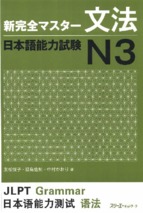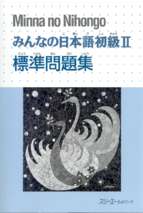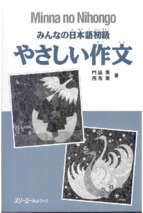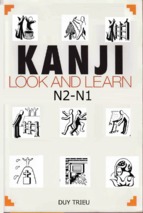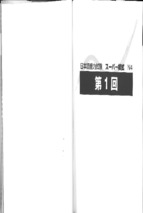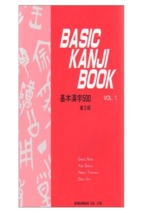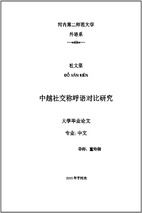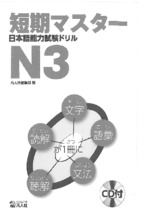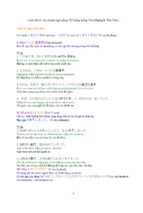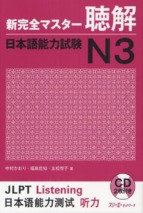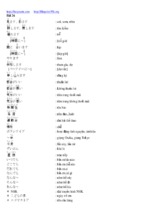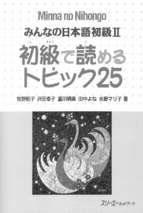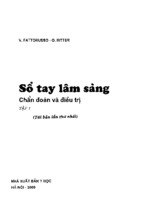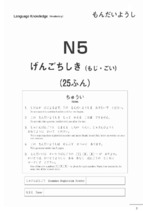Mô tả:
HOWDY
JAPANESE
CHIWASSU NIHONGO
ちわつす日本語
…Hello
konnichiwa
こんにちは
Japanese slang isn’t really used with strangers, so there aren’t a lot of meet-and-greet-type slang words. If you’re being introduced to somebody for the very first time, you gotta suck it up and settle for a good old-fashioned konnichiwa. But when youVe rolling with friends, MhelloM will come off a little stiff, so try slinging one of the following slang various 门 s 〇门 /conn/c/i/vvs:
Hi
koncha こんちや
Howdy
chiwassu ちわっす
Howdy-ho
konchassu
こんちやつす
Howdy-do
nchatt
んちゃつ
What’s up?
ossu
おっす
A slangier way of saying Mhellow would be ossu. Like its English counterpart “what’s up,” ossa has an infinite number of variations. Ossu was originally an incredibly formal word, the kind of thing that a soldier would say to a drill sergeant— like: MSIR YES SIR!n But in a slang context, ossu comes across as a silly way to say “hi.” Here’s how two Triends might greet each other, for example:
Whattup! (greeting) ossu
おっす!
‘Sup. (response) ussu
ぅっす。 or
Whazzap! (greeting) uissu
ういつす一!
Whazzaaaaaaap!!! (response) ussussu
うつすつす!
Good morning / Good evening
ohayo/ kombanwa
おはよう•こんばんは
There are also informal variations on “good morning” and “good evening”:
Good morning, Sunshine!
おつは一
G’morning!
ohayon
おはよ_ん
Evenin*
konbancha
こんばんちや
Long time no see
ohisashiburi
おひさしぶり
As in English, the next part of a greeting usually involves inquiring about the other person’s well-being.
しong time no see!
ohisa
おひさ!
How’s it hanging?
choshi doyo?
調子どうよ?
It’s hanging.
bochibochi denna
ぼちぼちでんな。
How you been?
ogenko?
おげんこ?
Same as always, man.
ai kawarazu dayo
相変わらずだよ。
And just as fat as always.
ai kawarazu debu dashi
相変わらずデブだし。
And you’re just as retarded as always.
omae wa ai kawarazu aho dashi
お前は変わらずアホだし。
Yo, guys!
yo omaera
よ一お前ら!
…-Goodbye
sayonara
さようなら
When it comes to parting phrases, there are also any number of variations on the traditional sayonara.
Buh-bye
bainara
ばいなら
See ya
hon ja ne ほ/^じゃ一ね
Later
mata ne
またね一
Smell you later (tough guy way of saying “bye”) aba yo
あばよ
Hey!
oi!
おい!
In British English, “oi” is a slightly impolite word used to get peopled attention. In Japanese, oi is a slightly impolite word used to get people’s attention. Go figure. Other attention grabbers:
Look!
hora
ほら!
Hey, kid...
na kimi
な\ 〇 O
Come here a sec.
chotto oide
ちょっとおいで。
I want to have a word with you.
hanashi ga arundakedo
話があるんだけど。
Myself
jibun
自分
One of the great things about Japanese is the variety of personal pronouns you can assume. The main three ways to say T are:
I (feminine/polite) watashi
私
I’m Nancy!
watashi wa nanshi desu
私はナンシーで一す。
I (boyish) boku
僕
Tm studying as hard as I can to get into college! boku wa issho kemmei juken benkyo o yatte masu
俺は一生けんめい受験勉強をやってま一す。
I (manly) ore
I totally look like Mel Gibson,don’t I? ore tte meru gibuson ni nitene
俺って、メルギブソンに似てねえ?
Of course, there are also numerous slang ways to say “1,” most of which are variations on the aforementioned pronouns. Kids use all of these with different levels of irony, but nobody \ust sticks to one pronoun. Especially girls—they can use male pronouns without any innuendo, though a dude’s use of a female pronoun will probably be construed as super gay.
I (male, redneck) ora
おら
I don’t know how to use them microwaves, ora denshi renji no tsukaikata nanka wakanne
おら、電子レンジの使い方なんかわかんね一。
I (male, dopey) oira
おいら
I went to New 丫ork, but I didn’t see no big apples, oira nyuyoku ni ittakedo okina ringo nanka minakatta ze
おいら、NYに行ったけど、大きなリンゴなん か見なかったぜ。
I (female, slightly Valley Girl) atashi
あたし
Oh my god, I have no idea what I did all day! uwa atashi kyo ichinichi nani yatteita ka wakannai no
うわ、あたし、今日一日何やっていたかわかん ないの!
I (female, rich girl) atai
あたい
I always take taxis because I can’t stand trains.
atai densha wa iya dakara itsumo takushl o tsukatte iru noyo
あたい、電車は嫌だからいつもタクシーを使って いるのよ。
I (male, geezer) asshi
あっし
You know, I used to be quite the ladies* man, back in the day. asshi wa mukashi kanari no iro otoko datta ze
あっしは昔、かなりの色男だったぜ。
Sorry
gomen nasai
ごめんなさい
Apologizing is a really just a matter of sincerity. If you truly regret your actions, just say so in a straigntforward and honest manner. But if you just don’t give a fuck, try apologizing with one of the following variations on gomennasai:
Sorry, Charlie
gomenchai
ごめんちゃい
Ex-squeeze me
gomenkusai
ごめんくさい
Whoopsy-daisy
mengo mengo
めんごめんご

